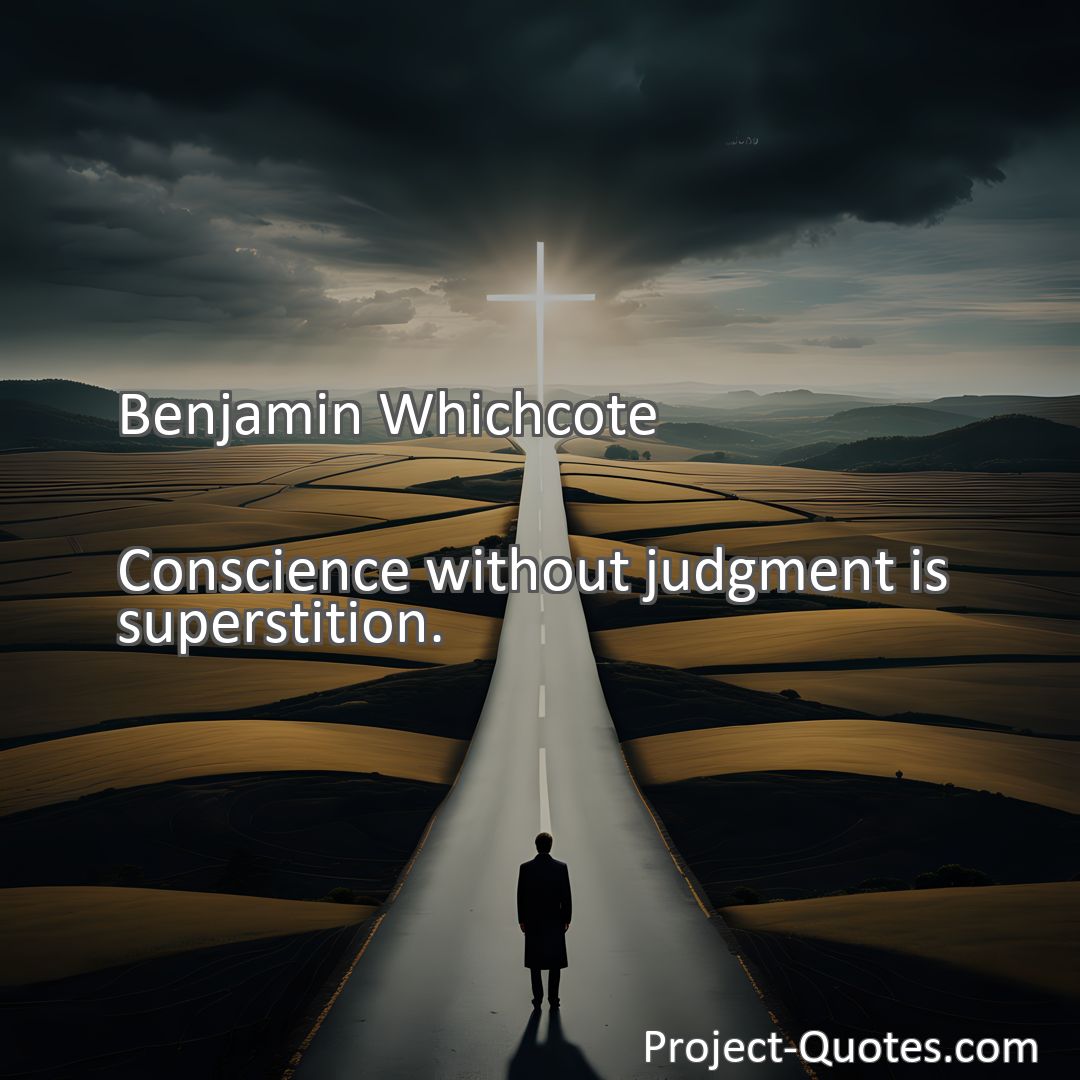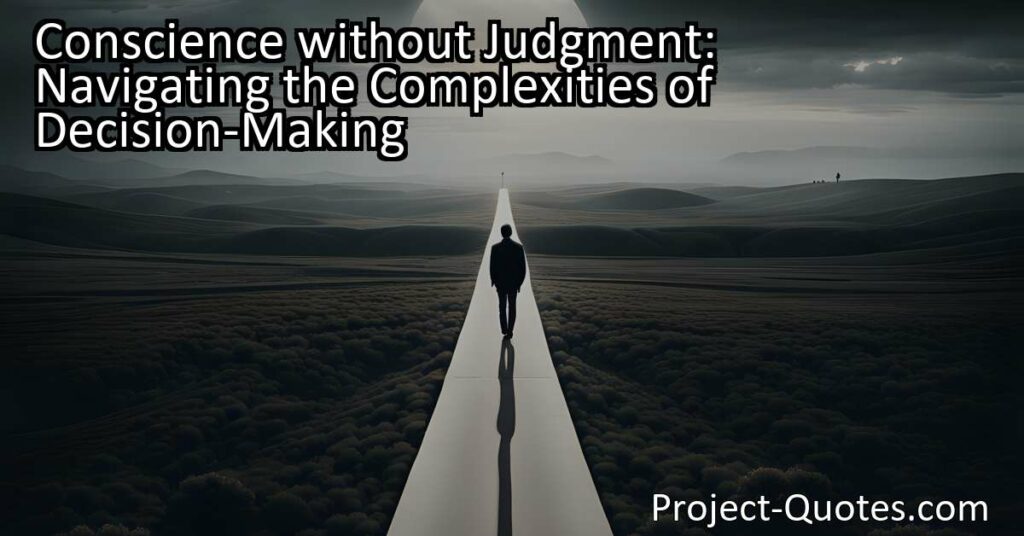Conscience without judgment is superstition.
Benjamin Whichcote
In “Conscience without Judgment: Navigating the Complexities of Decision-Making,” Benjamin Whichcote highlights the importance of not blindly following our conscience without careful evaluation and analysis. Our conscience serves as a moral compass, but without engaging our judgment, we may fall into irrational beliefs and actions. By exercising judgment, we can ensure that our actions are guided by reason, logic, and a commitment to the greater good.
Table of Contents
Meaning of Quote – Conscience without judgment is superstition.
Have you ever wondered about the nature of conscience? What exactly is it, and how does it shape our decisions and actions? Benjamin Whichcote, a renowned philosopher, once said, “Conscience without judgment is superstition.” This thought-provoking quote highlights the importance of not blindly following our conscience without careful evaluation and analysis.
Before we delve deeper into the concept of conscience and judgment, let’s take a moment to understand the meaning behind this powerful quote. According to Whichcote, having a conscience alone is not enough. Without engaging our judgment, blindly adhering to our conscience can lead us down the path of superstition. In other words, blindly following what our conscience tells us without critically assessing its validity can lead us to irrational beliefs or actions.
Now, what exactly is conscience? In simple terms, conscience is the inner voice that guides our moral decision-making. It serves as a moral compass, enabling us to differentiate right from wrong. Our conscience is shaped by various factors such as personal values, societal norms, and cultural upbringing. It acts as a constant companion, helping us navigate the complexities of life’s dilemmas.
However, conscience alone is not infallible or absolute. It is influenced by our subjective experiences, biases, and even societal pressures. That’s where judgment comes into play. By engaging our judgment, we critically evaluate the prompts of our conscience to determine whether they align with reason and logic.
When we exercise judgment, we apply a rational and thoughtful analysis to our conscience’s guidance. It involves stepping back from our initial instinctual reactions and considering alternative perspectives and potential consequences. Judgment enables us to make informed decisions rather than simply relying on gut feelings.
Now, you might be wondering why Whichcote specifically emphasized the relationship between judgment and superstition. Superstition refers to irrational beliefs or practices that arise from ignorance or fear. When we fail to exercise judgment, we may unknowingly fall victim to the trap of superstition.
Imagine a scenario where your conscience warns you of an impending danger. Without exercising judgment, you might become overly superstitious, attributing the warning to some supernatural power rather than considering logical explanations. By engaging judgment, you can assess the situation more objectively, weighing the likelihood of the danger and determining appropriate measures to address it.
Furthermore, when we don’t critically evaluate our conscience, we may succumb to biases and prejudices. Our upbringing, cultural background, and personal experiences significantly shape our conscience. However, these influences are not always objective or free from biases. By exercising judgment, we can challenge these biases and ensure that our actions are guided by reason and equality, rather than perpetuating injustices or discriminatory behavior.
It’s important to note that the relationship between conscience and judgment is not about dismissing our conscience altogether. Conscience serves as the initial prompt that alerts us to potential moral implications, but it is through judgment that we develop a deeper understanding of the situation and make wise decisions. By critically evaluating the guidance provided by our conscience, we ensure that our actions align with our true values and the greater good.
Engaging judgment when dealing with the complexities of conscience requires a level of self-awareness and self-reflection. It involves questioning our own beliefs, considering the perspectives of others, and being open to reevaluating our initial judgments. This process can be challenging, as it forces us to confront our biases and consider alternative viewpoints. However, by embracing this intellectual growth, we can become more empathetic, compassionate, and just individuals.
In conclusion, Benjamin Whichcote’s quote, “Conscience without judgment is superstition,” implores us to critically examine the guidance provided by our conscience. Blindly following our conscience without engaging our judgment can lead to irrational beliefs and behaviors. By exercising judgment, we ensure that our actions are guided by reason, logic, and a commitment to the greater good. So, let us reflect upon the promptings of our conscience, consider alternative perspectives, and actively engage our judgment to navigate the complexities of life in a thoughtful and conscientious manner.
I hope this quote inspired image brings you hope and peace. Share it with someone who needs it today!


